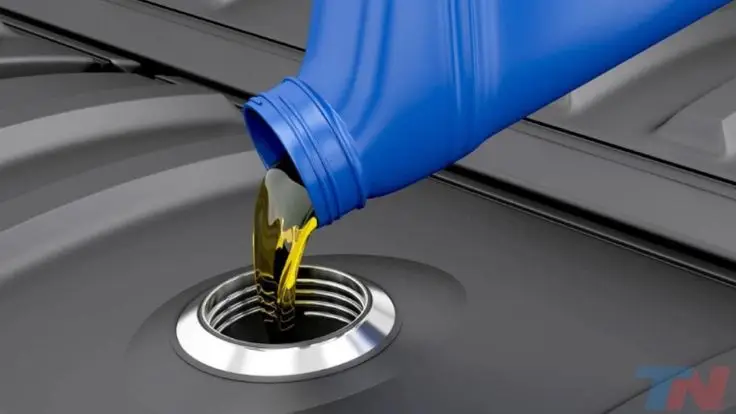Taking care of your car’s engine doesn’t have to be complicated. The oil you choose plays a big role in how well your engine runs and how long it lasts. Many drivers now choose synthetic oil over conventional oil for their vehicles.

Synthetic motor oil provides better engine protection by maintaining its viscosity in extreme temperatures and reducing wear on engine components. While most motor oils will do an adequate job of keeping your engine running, synthetic oils go further by holding accumulated debris away from critical parts while providing superior lubrication.
The benefits extend beyond basic protection. Synthetic oils can lead to improved performance and may allow for longer intervals between oil changes. This helps drivers save time and money while still ensuring their engines remain in top condition.
Key Takeaways
- Synthetic oil maintains its protective properties in extreme temperatures, providing superior engine protection compared to conventional oils.
- Regular use of synthetic oil helps keep engines cleaner and can extend the time between necessary oil changes.
- Choosing the right synthetic oil can improve vehicle performance while potentially extending engine life.
Understanding Synthetic Oil

Synthetic oil has revolutionized engine protection by offering superior performance compared to conventional options. These engineered lubricants provide better protection, longer service intervals, and improved efficiency across various driving conditions.
What Is Synthetic Oil?
Synthetic oil is a lubricant made from artificially created chemical compounds rather than crude oil alone. Unlike conventional oil, it’s manufactured by breaking down and rebuilding petroleum molecules in a controlled lab environment.
This engineering process creates uniform molecules that provide more consistent performance. The molecular structure is designed specifically for engine protection and efficiency.
Synthetic motor oil contains fewer impurities than conventional options. This purity allows it to flow more easily at low temperatures while maintaining stability at high temperatures.
Modern synthetic lubricants also include specialized additives that enhance cleaning properties, reduce friction, and prevent corrosion inside your engine.
How Synthetic Oil Differs from Conventional Oil
Conventional engine oil comes directly from crude oil through a refining process. It contains naturally occurring impurities and molecules of varying sizes. Synthetic oil, however, has carefully engineered molecules of uniform size and structure.
Synthetic oils maintain their viscosity (thickness) better across temperature extremes. This means they flow more easily during cold starts and maintain protection during hot operation.
Synthetic oil is less likely to form sludge or “gunk” in your engine. This cleaner operation helps extend engine life, particularly in older vehicles.
The stability of synthetic oil allows for longer intervals between oil changes – typically 7,500 to 15,000 miles versus 3,000 to 5,000 for conventional oil.
Types of Synthetic Oil: Full Synthetic, Synthetic Blend, and Conventional
Full Synthetic Oil: This premium option contains only artificially created base oils and advanced additives. It offers the highest level of engine protection and performance, especially in extreme conditions. Full synthetic delivers maximum wear protection and temperature stability.
Synthetic Blend: These oils mix conventional mineral oil with synthetic base stocks. They provide better performance than conventional oil at a lower price point than fully synthetic options. Synthetic blends offer a good middle ground for everyday driving conditions.
Conventional Oil: Also called mineral oil, this traditional option comes directly from refined crude oil. It provides basic engine lubrication but lacks the enhanced properties of synthetic formulations.
Each type offers different benefits:
| Oil Type | Cost | Change Interval | Performance | Best For |
|---|---|---|---|---|
| Full Synthetic | Highest | 7,500-15,000 miles | Superior | Extreme conditions, high-performance engines |
| Synthetic Blend | Moderate | 5,000-7,500 miles | Good | Everyday driving with occasional heavy loads |
| Conventional | Lowest | 3,000-5,000 miles | Basic | Older engines with regular driving patterns |
Thermal Stability and Engine Protection

Synthetic oil provides crucial benefits for engines through its superior resistance to heat breakdown and protective qualities. This specially formulated lubricant maintains its structure even under extreme conditions, helping engines perform better and last longer.
High-Temperature Performance
Synthetic oils are engineered to withstand significantly higher temperatures than conventional oils. They have a naturally higher viscosity index, meaning their thickness changes less as temperature fluctuates. This stability is critical during engine startup and operation.
When engines reach extreme temperatures, conventional oils can begin to break down and lose their protective properties. In contrast, synthetic oils maintain their molecular structure and resist thermal breakdown even under severe heat.
This thermal stability ensures that engine parts remain properly lubricated even when operating at temperatures that would degrade conventional oils. Synthetic oils typically perform well in temperature ranges from -40°F to over 400°F, making them ideal for both cold starts and high-heat conditions.
Prevention of Engine Overheating
Synthetic oils help prevent overheating through several mechanisms. Their superior flow characteristics improve heat transfer away from critical engine components, effectively acting as a cooling agent.
The uniform molecular structure of synthetic oil allows it to flow more efficiently through engine passages and reach tight clearances between moving parts. This improved circulation helps distribute heat more evenly throughout the engine.
Synthetic oils operate effectively across a wide temperature spectrum, maintaining optimal viscosity even when engines work harder. This consistent performance helps regulate engine temperature during:
- Heavy towing or hauling
- High-speed driving
- Stop-and-go traffic
- Extreme weather conditions
Protection Against Engine Damage
The enhanced thermal stability of synthetic oils directly translates to better engine protection. By maintaining proper lubrication under extreme conditions, these oils significantly reduce wear on critical engine components.
Synthetic oils create stronger protective films between metal surfaces. This reduces friction and prevents metal-to-metal contact that leads to premature wear. The oil’s resistance to breakdown means this protection remains consistent over longer periods.
Synthetic oils provide superior lubrication and engine protection compared to conventional options. They help prevent:
- Piston ring sticking
- Valve train wear
- Bearing damage
- Sludge formation
These protective qualities are particularly valuable in modern engines with tighter tolerances and higher operating temperatures. Engines using synthetic oil typically show less wear during inspection and can maintain peak performance for longer periods between oil changes.
Lubrication Properties and Viscosity

Synthetic oils deliver superior lubrication through optimized viscosity characteristics that adapt to varying engine conditions. These engineered lubricants maintain their protective properties across a wider temperature range than conventional oils.
Consistent Lubrication Across Conditions
Synthetic oils are engineered to maintain optimal viscosity across extreme temperature variations. In cold starts, when engine damage risk is highest, synthetic oils flow more readily to critical components, providing immediate protection.
Unlike conventional oils that thicken in cold weather, synthetics remain fluid at low temperatures, reducing startup wear significantly. This characteristic is especially valuable in winter climates or for vehicles that sit unused for extended periods.
At high temperatures, synthetic oils maintain their viscosity rather than breaking down. This stability ensures a consistent protective film remains between moving parts even when engines operate under heavy loads or in hot conditions.
Synthetic lubricants have a naturally higher viscosity index, meaning their thickness changes less dramatically with temperature fluctuations. This provides more reliable protection during typical driving conditions when temperatures repeatedly rise and fall.
Impact of Viscosity on Engine Components
Engine components rely on proper oil viscosity to function optimally. Modern engines with tighter tolerances typically require lower-viscosity oils that flow easily between precision parts while still providing adequate lubrication.
Critical areas like valve trains, bearings, and piston rings require constant oil film protection. Synthetic oils maintain this protection by providing the right thickness at each operating temperature.
Turbochargers, which operate at extremely high temperatures, benefit significantly from synthetic oil’s thermal stability. The consistent viscosity prevents oil breakdown that can lead to turbo failure.
The precision-engineered molecular structure of synthetic oil allows it to:
- Reduce internal friction
- Decrease operating temperatures
- Improve fuel efficiency
- Extend engine component lifespan
Proper viscosity also ensures oil can reach remote engine areas that might be starved of lubrication with thicker oils.
How Synthetic Oil Reduces Engine Wear
Synthetic oils create a more robust protective barrier between moving engine parts. Their uniform molecular structure maintains consistent viscosity, reducing wear on engine components.
The enhanced film strength of synthetic oil prevents metal-to-metal contact even under high-stress conditions. This protection is especially critical for components like camshafts and lifters that experience significant pressure.
Engine deposits are minimized with synthetic oils as they resist breakdown and oxidation. Clean engines run more efficiently and experience less wear over time.
Modern synthetic formulations include specialized additives that bond to metal surfaces. This creates an additional layer of protection that remains even during startup when most conventional oils have drained away.
Long-term engine health is preserved through synthetic oil’s superior cleaning properties. By suspending contaminants and preventing sludge formation, these oils help maintain engine performance throughout extended service intervals.
Engine Longevity and Performance

Synthetic oil plays a crucial role in extending engine life and boosting performance. The enhanced molecular structure of synthetic oils provides superior protection against wear, heat, and deposits compared to conventional oils.
Enhancing Engine Lifespan
Synthetic oil significantly extends engine life through superior protection against harmful elements. Engines using synthetic oil with regular changes can extend their life by up to 50% compared to those that don’t receive proper maintenance.
The uniform molecular structure of synthetic oil creates a more stable lubricating film that reduces metal-to-metal contact. This minimizes wear on critical engine components like pistons, valves, and bearings.
Synthetic oil also resists breakdown at high temperatures, preventing sludge formation that can clog oil passages. This helps maintain proper oil flow to all engine parts, even under extreme conditions.
The superior cleaning properties of synthetic oils help remove existing deposits while preventing new buildup. These deposits can cause accelerated wear and potentially catastrophic engine damage if left unchecked.
Improving Overall Performance
Synthetic oil delivers measurable performance improvements in several key areas. The enhanced lubrication properties reduce internal friction, which can improve fuel efficiency by 2-3% in many vehicles.
Synthetic oils maintain their viscosity better across temperature extremes. This ensures proper lubrication during cold starts and prevents thinning during high-temperature operation.
The superior additives in synthetic oil enhance wear protection and increase the oil’s flash point. This means better resistance to breakdown under high stress conditions like towing or performance driving.
Many modern engines with turbochargers or direct injection systems specifically require synthetic oils. These high-performance components generate extreme heat and pressure that conventional oils simply cannot handle.
Synthetics also improve engine responsiveness by reducing drag on moving parts, allowing them to move more freely and efficiently.
Synthetic Oil and Maintenance Practices

Proper maintenance practices are essential when using synthetic oil to maximize engine protection and performance. Regular servicing combined with quality products ensures optimal engine health and extends vehicle lifespan.
Recommended Oil Change Frequency
Synthetic oil typically allows for longer intervals between oil changes compared to conventional oil. Most manufacturers recommend changing synthetic oil every 7,500 to 10,000 miles, while some high-performance synthetics can last up to 15,000 miles.
These extended intervals are possible because synthetic oil can extend engine life by up to 50% with proper maintenance. However, severe driving conditions may require more frequent changes.
Always consult your vehicle’s owner’s manual for specific recommendations. Driving conditions matter too:
- Severe conditions (short trips, extreme temperatures, towing): Every 5,000-7,500 miles
- Normal conditions: Follow manufacturer guidelines
- Newer vehicles with oil monitoring systems: Change when indicated
Monitoring Oil Level and Quality
Checking your oil level regularly is crucial even with synthetic oil’s superior performance. Most experts recommend checking the oil level at least once a month or before long trips.
To properly check oil:
- Park on level ground with the engine off
- Wait 5-10 minutes for oil to settle
- Remove dipstick, wipe clean, reinsert fully, then check
Oil quality indicators to watch for include:
- Color: Should be amber to light brown (dark or black oil may need changing)
- Consistency: Should feel smooth, not gritty
- Smell: Burnt smell indicates potential problems
Synthetic oil tends to remain cleaner longer and is less volatile, meaning less oil is lost through the exhaust system.
Choosing the Right Oil Filter
The oil filter is a critical component of engine maintenance that should be replaced with every oil change. When using synthetic oil, consider using a high-quality filter designed for extended use.
Standard filters might break down before synthetic oil reaches its change interval. Premium filters with synthetic media can trap smaller particles and last longer, complementing synthetic oil’s extended life.
Key factors when selecting an oil filter:
- Filtration efficiency: Higher quality filters capture more contaminants
- Flow rate: Ensures proper oil circulation throughout the engine
- Capacity: Premium filters can hold more contaminants
Many mechanics recommend using filters specifically labeled for synthetic oil. These filters are designed to maintain performance throughout the longer intervals between oil changes that synthetic oil allows.
Environmental Impact and Emissions

Synthetic oil plays a significant role in reducing environmental harm through lower emissions and better recycling options. The environmental benefits extend beyond just engine performance.
Reduced Emissions and Environmental Benefits
Synthetic oil helps vehicles produce lower emissions compared to conventional oils. This reduction happens because synthetic oil burns cleaner and creates fewer harmful byproducts during engine operation.
When engines run with conventional oils, they can release more sulfur dioxide and nitrogen dioxide into the atmosphere. These compounds contribute to air pollution and environmental degradation.
Synthetic oils maintain their effectiveness longer, requiring less frequent oil changes. This means:
- Fewer oil changes per year
- Less waste oil produced overall
- Reduced consumption of petroleum resources
Vehicles using synthetic oil typically maintain better fuel efficiency over time. Better fuel efficiency directly translates to lower carbon emissions per mile driven.
Disposal and Recycling of Synthetic Oil
Proper disposal of synthetic oil is crucial as used engine oil often contains hazardous substances and heavy metals that can harm ecosystems if released improperly.
Most synthetic oils can be recycled through specialized facilities. The recycling process removes contaminants and allows the base oil to be reused in new products.
Many auto service centers accept used oil for recycling. This creates an accessible system for responsible disposal after oil changes.
Recycling one gallon of used oil can produce the same amount of clean oil as refining 42 gallons of crude oil. This represents significant energy and resource savings.
Improper disposal, such as pouring oil down drains or onto soil, can cause severe environmental damage to soils, groundwater, and wildlife. Just one quart of oil can contaminate thousands of gallons of water.
Factors Affecting Synthetic Oil Performance

While synthetic oil offers superior protection for your engine, several key factors influence how long it remains effective. The conditions under which you drive, what you ask of your vehicle, and manufacturer specifications all play crucial roles in determining oil performance.
Driving Conditions and Habits
Your daily driving patterns significantly impact synthetic oil’s lifespan. Short trips under 10 miles prevent oil from fully warming up, which leads to moisture buildup and potential sludge formation. This can reduce the oil’s effectiveness over time.
Extreme temperatures also affect performance. In very cold weather, synthetic oil flows better than conventional oil, making it easier to start your engine. However, persistent high temperatures can accelerate oil breakdown.
Stop-and-go traffic creates more strain on your engine than highway driving. When you frequently accelerate and brake, your engine works harder, generating more heat and stress on the oil.
Regular maintenance also matters. Changing the oil filter with each oil change ensures contaminants don’t circulate through your engine.
Towing and Extreme Operations
Towing trailers or hauling heavy loads places additional demands on your engine and oil. These activities generate excess heat that can break down oil more quickly than under normal conditions.
When you tow regularly, your engine works harder and operates at higher temperatures. This increases friction between engine parts and accelerates the degradation of oil additives that provide critical protection.
Off-road driving introduces more contaminants into your engine. Dust, dirt, and moisture can enter through the air intake system and mix with the oil, reducing its effectiveness.
High-performance driving, such as track days or mountain driving, also demands more from your oil. The higher RPMs and sustained loads create extreme operating conditions that conventional oils often can’t handle.
Consulting the Owner’s Manual
Your vehicle’s manufacturer has specific recommendations for oil type and change intervals based on extensive testing. The owner’s manual provides these guidelines tailored to your engine’s design.
Most modern vehicles specify a particular viscosity grade (like 5W-30) and quality standard (such as API SN). Following these specifications ensures optimal engine protection and performance.
The manual also indicates how driving conditions affect oil change intervals. Many manufacturers recommend more frequent changes for “severe service” conditions, which include:
- Frequent short trips
- Extreme temperatures
- Dusty environments
- Towing or hauling
- Mountain driving
Advanced vehicles may have oil life monitoring systems that analyze actual driving conditions to determine when an oil change is needed, rather than relying solely on mileage.
Frequently Asked Questions

Synthetic oil offers several advantages for engine health, though many vehicle owners have questions about its use. Understanding the differences between synthetic and conventional oils can help you make better decisions about your car’s maintenance.
What are the benefits of using synthetic oil compared to conventional oil?
Synthetic oil provides better lubrication and protection than conventional oil. It reduces friction and wear on engine parts, helping them last longer.
Synthetic oils also perform better in extreme temperatures. They flow more easily in cold weather and resist breakdown in high heat conditions.
Many synthetic oils contain special additives that help clean engine components and prevent sludge buildup. This keeps the engine running cleaner and more efficiently over time.
Are there any potential risks associated with using synthetic oil in older vehicles?
Older engines with high mileage might experience leaks after switching to synthetic oil. The superior flow properties of synthetic oil can find its way through worn seals that conventional oil might have been blocking.
Some mechanics recommend avoiding overfilling the oil when using synthetics, as this can cause problems in any vehicle regardless of age.
For many older vehicles, a gradual transition or using a high-mileage synthetic blend might be a better option than switching directly to full synthetic oil.
How does synthetic oil impact the longevity and performance of an engine?
Synthetic oil can significantly extend engine life by providing superior protection against wear. The engineered molecules in synthetic oil create a more consistent protective layer on engine parts.
The enhanced lubrication reduces friction between moving components, which helps prevent premature wear on critical engine parts.
Many users report smoother engine operation and improved performance after switching to synthetic oil, particularly in demanding driving conditions.
Can synthetic oil improve fuel efficiency, and if so, how?
Synthetic oil can improve fuel efficiency by reducing internal engine friction. Less energy is wasted overcoming friction, allowing more of the fuel’s energy to power the vehicle.
The efficiency gains are typically modest, ranging from 1-2% in most vehicles. However, this can add up over the life of the vehicle.
In cold weather, synthetic oil’s better flow characteristics allow the engine to reach optimal operating efficiency more quickly than with conventional oil.
What are the fundamental differences between synthetic oil and regular oil?
Synthetic oil is artificially created using chemically modified petroleum components, while conventional oil is refined directly from crude oil. This engineering process gives synthetic oil more consistent molecular structure.
Synthetic oils contain specialized additives that enhance performance, including detergents, friction modifiers, and anti-wear compounds.
Regular oil tends to break down and oxidize faster than synthetic oil, especially under high-temperature conditions or extended use.
How often should synthetic oil be changed in comparison to regular oil?
Synthetic oil typically needs to be changed less frequently than conventional oil. While conventional oil might require changes every 3,000-5,000 miles, synthetic oil often lasts 7,500-15,000 miles.
The exact interval depends on driving conditions, vehicle type, and manufacturer recommendations. Some modern vehicles with synthetic oil can go up to 10,000 miles between changes.
It’s important to check the oil level regularly, regardless of oil type. Even with synthetic oil’s longer life, proper maintenance remains essential for engine longevity.



